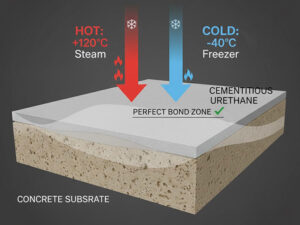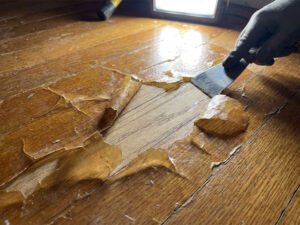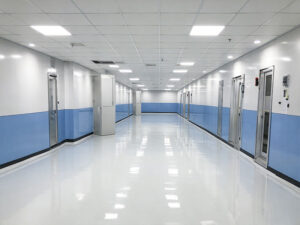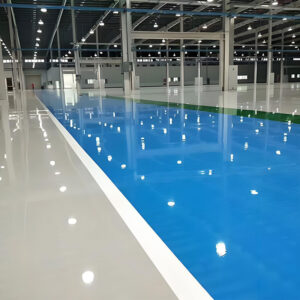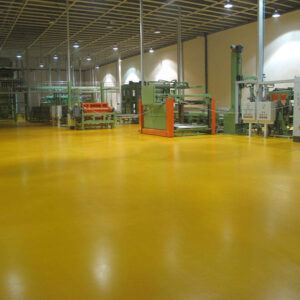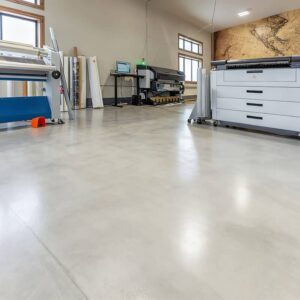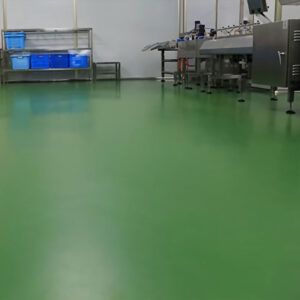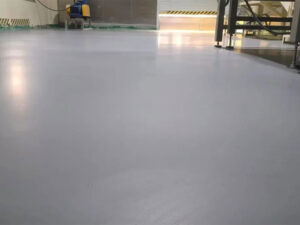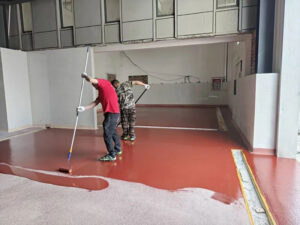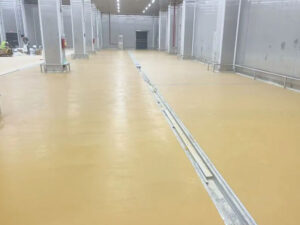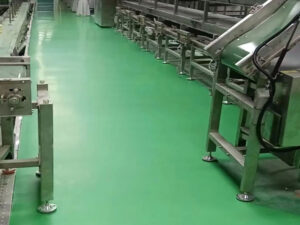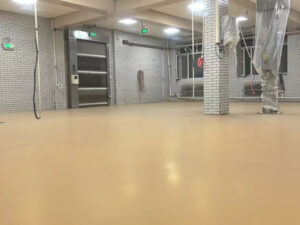Polyurethane floor paint is a game-changer for industrial and commercial spaces. It’s durable, chemical-resistant, and perfect for high-traffic areas like warehouses, parking garages, and manufacturing facilities. But before you dive in, it’s important to know which floors are compatible with this versatile coating. Let’s break it down.
Why Choose Polyurethane Floor Paint?
1. Industrial-Grade Durability
Polyurethane floor paint is specifically designed for industrial floor paint applications. It can withstand heavy machinery, foot traffic, and extreme wear and tear, making it ideal for warehouses, manufacturing plants, and automotive workshops.
2. Perfect for Commercial Spaces
As a commercial floor coating, polyurethane paint offers both functionality and aesthetics. It’s widely used in retail stores, offices, and restaurants where a clean, professional appearance is essential.
3. Ideal for Concrete Floors
If you’re looking for the best floor paint for concrete, polyurethane is a top contender. It adheres well to concrete floors, providing a seamless, durable finish that resists cracking and peeling.
4. Non-Slip Safety
Safety is a priority in high-traffic areas. Polyurethane paint can be formulated with non-slip floor paint properties, making it perfect for parking garages, ramps, and food processing plants.
5. Chemical Resistance
For environments exposed to harsh chemicals, chemical resistant floor paint is a must. Polyurethane paint excels in laboratories, pharmaceutical facilities, and manufacturing plants where spills and chemical exposure are common.
6. Long-Lasting Performance
When durability is key, durable floor paint like polyurethane is the answer. It lasts for years with minimal maintenance, reducing long-term costs and downtime.
7. Versatility and Aesthetics
Polyurethane paint is available in a variety of finishes, from matte to glossy, and can be customized to match your space’s design. Whether you’re coating a garage floor or a commercial lobby, it delivers both performance and visual appeal.
Applications of Polyurethane Floor Paint
1. Garage Floors
Polyurethane floor coating for garage floors is a popular choice for homeowners and businesses alike. It provides a durable, easy-to-clean surface that resists oil stains and heavy vehicle traffic. Plus, it enhances the overall look of your garage.
2. Warehouse Floors
For polyurethane floor coating for warehouse applications, this paint is unmatched. It can withstand heavy machinery, pallet jacks, and constant foot traffic, making it the best floor paint for warehouses. Its chemical resistant properties also protect against spills and harsh substances.
3. Parking Lots and Garages
Polyurethane floor coating for parking lot and floor paint for parking garages is ideal for areas exposed to vehicle traffic, oil, and weather conditions. Its non-slip properties ensure safety, while its durability reduces maintenance costs.
4. Industrial Concrete Floors
Polyurethane paint for industrial concrete floors is a top choice for manufacturing plants and factories. It provides a seamless, durable finish that resists wear and tear, making it perfect for high traffic areas.
5. Commercial Spaces
For best polyurethane paint for commercial spaces, this coating is a winner. It’s used in retail stores, offices, and restaurants to create a clean, professional look while offering long-lasting performance.
6. Food Processing Plants
In polyurethane floor paint for food processing plants, hygiene and durability are critical. This paint meets strict standards, offering chemical resistance and easy cleaning to maintain a sanitary environment.
7. High-Traffic Areas
Polyurethane floor paint for high traffic areas is a reliable solution for spaces like airports, shopping malls, and sports facilities. Its durability and anti-slip properties ensure safety and longevity.
8. Uneven Surfaces
For polyurethane floor paint for uneven surfaces, this coating provides a smooth, level finish. It’s perfect for older floors or surfaces that require repair.
9. Outdoor Use
Polyurethane floor paint for outdoor use is UV-resistant and weatherproof, making it ideal for patios, walkways, and outdoor parking areas.
Benefits of Polyurethane Paint in Specific Applications
- Warehouses: Polyurethane paint vs epoxy for warehouses offers better flexibility and UV resistance, reducing the risk of cracking and yellowing.
- Parking Lots: The benefits of polyurethane paint for parking lots include resistance to oil, grease, and weather conditions, ensuring long-lasting performance.
- Food Processing Plants: Polyurethane floor paint for chemical resistance protects against harsh cleaning agents and spills, maintaining hygiene standards.
- High-Traffic Areas: With polyurethane floor paint with anti-slip properties, safety is enhanced in busy environments like airports and malls.
How to Prepare Floors for Polyurethane Paint
Proper surface preparation is crucial for achieving a durable and long-lasting finish with polyurethane floor paint. Whether you’re working on garage floors, concrete floors, or other surfaces, following these steps will ensure optimal results.
1. Clean the Surface Thoroughly
Before applying polyurethane paint, the floor must be free of dirt, oil, grease, and debris. Here’s how:
- Sweep and Vacuum: Remove loose dirt and dust.
- Degrease: Use a degreaser to eliminate oil and grease stains, especially in garage floors.
- Mop: Clean the floor with a mild detergent and water, then let it dry completely.
2. Repair Cracks and Imperfections
For concrete floors, cracks and holes can compromise the finish. Follow these steps:
- Fill Cracks: Use a concrete patching compound to fill any cracks or holes.
- Level the Surface: For uneven areas, consider using a self-leveling compound.
- Sand: Smooth out rough patches with a concrete grinder or sander.
3. Etch the Concrete (If Necessary)
To ensure proper adhesion of polyurethane paint, etching is often required for concrete floors:
- Apply Etching Solution: Use a concrete etching solution to open up the pores of the concrete.
- Rinse and Dry: Rinse the floor thoroughly with water and allow it to dry completely.
4. Apply a Primer
A primer is essential for better bonding and a smoother finish:
- Choose the Right Primer: Use a primer compatible with polyurethane paint.
- Apply Evenly: Use a roller or brush to apply the primer in thin, even coats.
- Let It Dry: Allow the primer to dry according to the manufacturer’s instructions.
5. Apply the Polyurethane Paint
Now you’re ready to apply the polyurethane floor paint:
- Stir the Paint: Mix the paint thoroughly before application.
- Use the Right Tools: For garage floors, use a roller or paint sprayer for even coverage.
- Apply in Thin Coats: Apply the paint in thin, even layers to avoid bubbles and unevenness.
- Allow Drying Time: Let each coat dry completely before applying the next.
Tips for Specific Applications
- How to Apply Polyurethane Paint on Garage Floors: Focus on degreasing and repairing cracks, as garage floors are prone to oil stains and wear.
- How to Prepare Concrete Floors for Polyurethane Paint: Etching is crucial for concrete to ensure proper adhesion.
- How to Apply Polyurethane Paint on Concrete Floor: Use a roller or sprayer for even coverage, and apply multiple thin coats for durability.
Common Mistakes to Avoid
- Skipping Surface Preparation: A clean, smooth surface is essential for a long-lasting finish.
- Applying Thick Coats: Thick coats can lead to bubbles, cracking, and uneven drying.
- Ignoring Drying Time: Rushing the process can compromise the finish.
Long-Term Benefits of Polyurethane Floor Paint
Investing in polyurethane floor paint offers long-term advantages:
- Extended Lifespan: Lasts for years with minimal maintenance.
- Cost-Effective: Reduces the need for frequent repairs.
- Enhanced Safety: Provides anti-slip properties for safer environments.
Polyurethane Floor Paint Cost: What You Need to Know
When planning a flooring project, understanding the polyurethane floor paint cost is essential for budgeting. Here’s a breakdown of what to expect:
1. Cost Range
The cost of polyurethane floor paint typically ranges from **3to10 per square foot**, depending on factors like:
- Surface Type: Concrete, metal, or tile floors may require different preparation and paint types.
- Project Size: Larger projects often benefit from bulk discounts.
- Additional Features: Anti-slip or chemical-resistant properties may increase the cost.
2. Factors Affecting Cost
Several factors can influence the polyurethane floor paint cost:
- Surface Preparation: Cleaning, etching, and priming add to the overall cost.
- Paint Quality: High-quality paints may cost more upfront but offer better durability and long-term savings.
- Labor Costs: Professional installation may increase the cost but ensures a flawless finish.
For tips on reducing costs, read our article on **Affordable Polyurethane Floor Paint Options**.
3. Cost Comparison with Other Coatings
When compared to epoxy floor coating, polyurethane floor paint may have a higher initial cost but offers superior UV resistance and flexibility. For a detailed comparison, visit our page on **Polyurethane vs Epoxy Floor Paint**.
4. Long-Term Savings
While the polyurethane floor paint cost may seem high initially, its durability and low maintenance requirements make it a cost-effective choice. It can last for 5-10 years or more, reducing the need for frequent repairs or replacements.
Polyurethane floor paint is a versatile and durable solution for a wide range of industrial and commercial applications. Whether you’re coating a concrete floor, metal floor, or tile floor, polyurethane paint delivers exceptional performance and long-lasting results.Ready to transform your space? Contact us today for expert advice on choosing the right polyurethane floor coating for your project!

